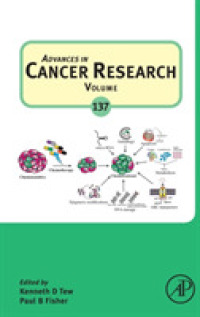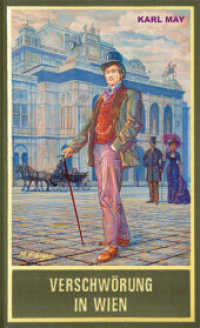- ホーム
- > 洋書
- > 英文書
- > Science / Mathematics
Full Description
Compared with conventional communications, cooperative communication allows multiple users in a wireless network to coordinate their packet transmissions and share each other's resources, thus achieving high-performance gain and better service coverage and reliability. Energy Efficient Cooperative Wireless Communication and Networks provides a comprehensive look at energy efficiency and system design of cooperative wireless communication.
Introducing effective cooperative wireless communication schemes, the book supplies the understanding and methods required to improve energy efficiency, reliability, and end-to-end protocol designs for wireless communication systems. It explains the practical benefits and limitations of cooperative transmissions along with the associated designs of upper-layer protocols, including MAC, routing, and transport protocol.
The book considers power efficiency as a main objective in cooperative communication to ensure quality-of-service (QoS) requirements. It explains how to bring the performance gain at the physical layer up to the network layer and how to allocate network resources dynamically through MAC/scheduling and routing to trade off the performance benefits of given transmissions against network costs.
Because the techniques detailed in each chapter can help readers achieve energy efficiency and reliability in wireless networks, they have the potential to impact a range of industry areas, including wireless communication, wireless sensor networks, and ad hoc networks.
The book includes numerous examples, best practices, and models that capture key issues in real-world applications. Along with algorithms and tips for effective design, the book supplies the understanding you will need to achieve high-performing and energy efficient wireless networks with improved service coverage and reliability.
Contents
Introduction. Fundamental Understanding of Cooperative Communication. Reliability of Cooperative Transmission. Energy Consumption of Cooperative Transmission. Throughput of Cooperative Transmission. Delay Analysis of Cooperative Transmission. Cooperative Communication in Single-Hop Scenario. Power Efficiency of Cooperative Transmission. Optimal Power Allocation of Cooperative Transmission. Cooperative Communication in Multi-Pair Multi-Hop Scenario. REACT: Residual Energy-Aware Cooperative Transmissions. Joint Beamforming and Power Allocation. Selfishness-Aware Energy-Efficient Cooperative Networks. Network Protocol Design of M2M-Based Cooperative Relaying.








